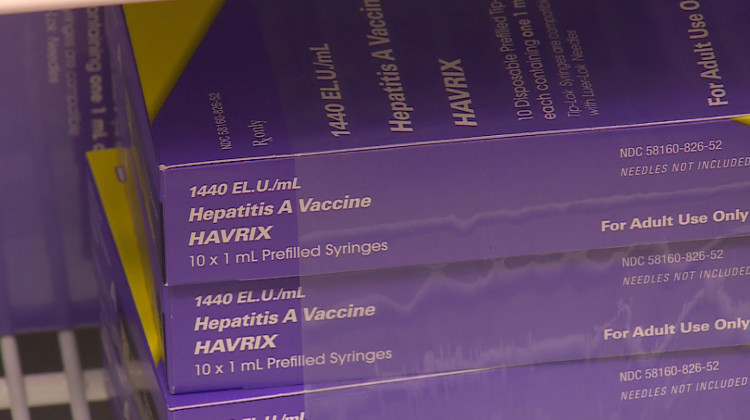
Nearly 2,000 hepatitis A vaccinations have been administered in Wayne County since the outbreak began.
Barbara Brosher/WFIU-WTIU News, FileThe number of hepatitis A cases in Wayne County, Indiana is among the highest in the country, and the response has been focused on vaccination and education.
Last week Wayne County recorded 97 cases of hepatitis A, a slight uptick from the previous week. Health officials are optimistic the outbreak of the contagious liver infection may be under control.
Wayne County Health Department Executive Director Eric Coulter says state health department has assisted in the response effort.
"They were sending teams of staff to give immunizations for hepatitis A in high risk areas, like homeless populations, maybe missions," says Coulter.
The county also offered shots at the county’s syringe exchange and to the incarcerated population. Nearly 2,000 vaccines have been administered since the outbreak began.
Wayne County Health Department Chief Operating Officer Kimberly Flannigan says improved awareness has helped.
"Some of the parents now, when they bring in their children for vaccines, they’re asking for this," says Flannigan.
Clark County has the second highest number of cases in the state at 74.
Indiana has recorded 450 cases and one death. Usually, the state has about 20 cases of hepatitis A in a year.
 DONATE
DONATE









 Support WFYI. We can't do it without you.
Support WFYI. We can't do it without you.